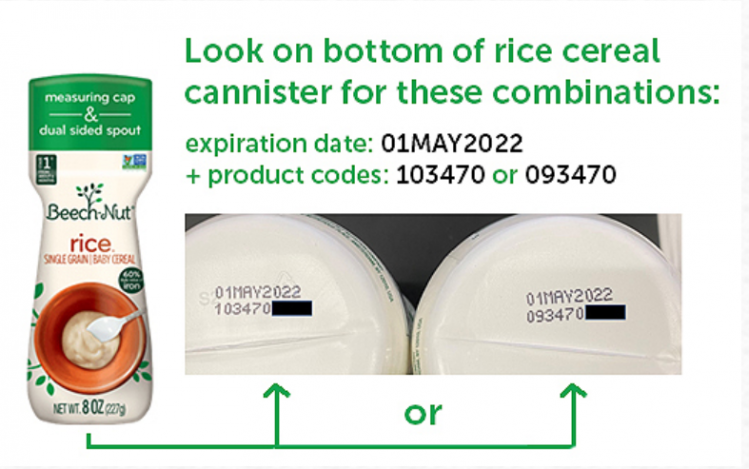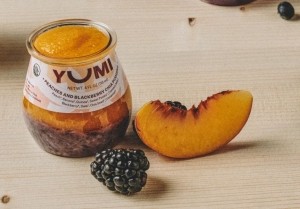Heavy metals in baby food: 86 lawsuits and counting as Beech-Nut decides to exit infant rice cereal category owing to inorganic arsenic concerns

Since the report alleging "dangerously high" levels of lead, mercury, cadmium and arsenic in selected baby food products was published Febr. 4, the companies named in it - Beech Nut Nutrition, Gerber, Campbell Soup (Plum Organics), Nurture Inc (Happy Family Organics), Hain Celestial (Earth’s Best), Sprout Foods Inc, and Walmart - have been hit with a tsunami of lawsuits.
On the face of it, the lawsuits make similar claims (strenuously denied by the defendants), generally alleging that the above firms knowingly sold baby food containing harmful heavy metals yet marketed them as healthy.
It may not, however, make sense to lump all of the cases altogether, says the US Judicial Panel on Multidistrict Legislation.
Lumping all the lawsuits together doesn’t make sense, says judicial panel
In a June 7 order denying requests to centralize the actions, the judicial panel explained: “Each defendant manufactures, markets, and distributes its own baby food products subject to different manufacturing processes, suppliers, and quality control procedures. The claims against each defendant thus are likely to rise or fall on facts specific to that defendant, such as the amount of heavy metals in its products, the results of its internal testing, if any, and its marketing strategies..."
Tellingly, said the panel, “centralization is opposed by plaintiffs in 39 actions representing several different plaintiffs’ attorney groups, and all defendants. Given the relatively minimal number of common factual questions, the potential for a multi-defendant MDL to introduce added complexity to this litigation, and the strong opposition of numerous plaintiffs and defendants, we are not persuaded that industry-wide centralization is appropriate.”
It added: “We believe it is better to allow the parties’ attempts to self-organize play out before centralizing any part of this litigation.”
Beech-Nut exits infant rice cereal market
A day after the ruling was filed, Beech-Nut Nutrition issued a voluntary recall of one lot of its Stage 1, Single Grain Rice Cereal after routine sampling by the State of Alaska found that the products tested above the 100ppb guidance level for naturally occurring inorganic arsenic set by the FDA in August 2020, “though the rice flour used had been tested and confirmed as being below the FDA guidance level.”
In a statement on Beech-Nut Nutrition's website, the company explained: "No illnesses related to these product codes have been reported to date, and no other rice cereal production dates or Beech-Nut products are affected by this recall.
Yumi: ‘From the start, we have avoided rice because it is too problematic’
Given the ongoing challenge of sourcing rice flour consistently below FDA guidance levels for inorganic arsenic, Beech-Nut said it had decided to exit the infant rice cereal market.
While the move took some commentators by surprise, several baby food companies have chosen to avoid rice altogether given its tendency to suck up heavy metals from the environment, with Yumi telling FoodNavigator-USA last week that, “From the start, we have avoided rice because it is too problematic.”
‘If it is not possible, or it is exceedingly costly, to source ingredients like rice that achieve a safe level, manufacturers should find substitutes…’
And things will only become more challenging for manufacturers should lawmakers pass the Baby Food Safety Act of 2021 which sets maximum levels for inorganic arsenic at just 15 ppb for infant cereals, significantly lower than the 100ppb threshold enshrined in the FDA’s 2020 guidance.
So is a 15ppb threshold feasible for inorganic arsenic in infant rice cereals, given that Beech-Nut has just indicated that even 100ppb is very challenging?
Congressman Raja Krishnamoorthi – who chairs the Subcommittee on Economic and Consumer Policy which released the recent baby food report – says feasibility shouldn't be a guiding factor.
If the targets in the bill are not achievable with existing recipes, he said, baby food brands should simply reformulate their products.
“If it is not possible, or it is exceedingly costly, to source ingredients like rice that achieve a safe level, then baby food manufacturers should find substitutes for those ingredients.”



















